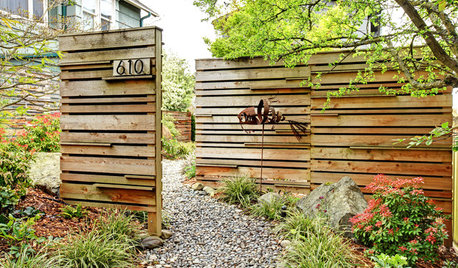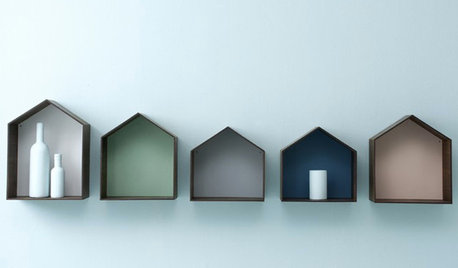baby holstein calves
growernut
16 years ago
Related Stories

HOUZZ TOURSMy Houzz: A Prefab Modern Farmhouse Rises in Vermont
A prefab borrows from the simplicity of barns to suit its family and the Vermont countryside
Full Story
BATHROOM DESIGNLight-Happy Changes Upgrade a Small Bathroom
Glass block windows, Starphire glass shower panes and bright white and blue tile make for a bright new bathroom design
Full Story
DECORATING GUIDES15 Key Pieces for Modern Farmhouse Style
Get that homey feel while staying of the moment with these modern takes on country classics
Full Story
FENCES AND GATESHow to Choose the Right Fence
Get the privacy, security and animal safeguards you need with this guide to fencing options
Full Story
PRODUCT PICKSGuest Picks: Follow a Modern Farmhouse Path
These clean-lined furniture pieces and accessories in natural materials will put your home on the road to country chic
Full Story
FURNITURE10 Reasons to Love Big, Comfy Sectionals
With their soft lines, visual heft and casual versatility, modular sofas are a great choice for many rooms
Full Story
FURNITUREGuest Picks: Fantasy Furniture
20 totally extravagant pieces from the outré to the "I want that!"
Full Story





Dibbit
backlanelady
Related Professionals
La Marque Landscape Architects & Landscape Designers · Rossville Landscape Architects & Landscape Designers · Hartford Landscape Contractors · Bell Gardens Landscape Contractors · Fort Payne Landscape Contractors · Mastic Beach Landscape Contractors · Overland Park Landscape Contractors · Chaska Fence Contractors · Columbia Fence Contractors · Gilbert Fence Contractors · Irvine Fence Contractors · Saratoga Springs Fence Contractors · Bethany Decks, Patios & Outdoor Enclosures · Boise Decks, Patios & Outdoor Enclosures · Freehold Decks, Patios & Outdoor EnclosuresgrowernutOriginal Author
fancifowl
kydaylilylady
backlanelady
growernutOriginal Author
fancifowl
backlanelady
Terrie_taylor08_yahoo_com
goodhors
herberab